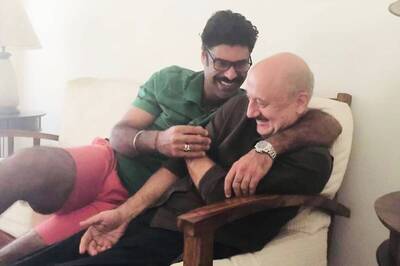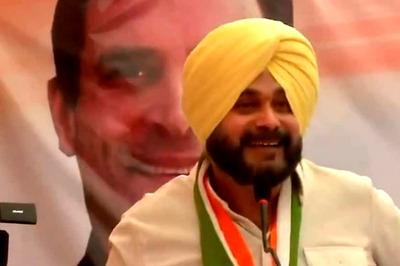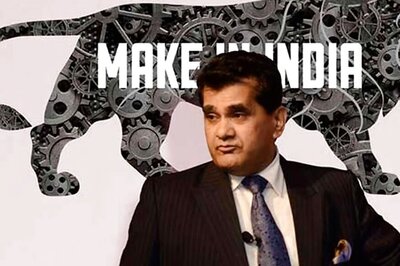
views
Guwahati: Assam’s North Cachar Hills district, now called Dima Hasao, has seen a very bloody past – one that continues to keep pace with time even today. Ahead of the Lok Sabha election in the Autonomous District Lok Sabha constituency, a new insurgent group in the region has called for a 36-hour bandh in the two hills districts of Assam - Karbi Anglong and Dima Hasao, sending a disturbing message to lawmakers.
The Dimasa National Liberation Front (DNLA), the newly formed ethnic insurgent group Monday announced its launch in a press release. The group is committed to revamp the national struggle and fight for the liberation of a sovereign, Independent Dimasa Nation.
“We all are determined to our culture, language and historical right,” said Ringsmai Dimasa, information and publicity secretary of the group in the press release.
“The Dimasa tribe of India unitedly formed an armed revolutionary organisation in the name of Dimasa National Liberation Army under the chairmanship of Naisodao Dimasa and Home Secretary Kharmindao Dimasa. The organization is for and to develop a sense of brotherhood among the Dimasa and also to rebuild the trust and faith among the Dimasa society for regaining the Dimasa Kingdom,” he added.
Ringsmai further stated that the organisation has also established a government-in-exile called Dimasa Peoples’ Supreme Council. “The DNLA oppose the citizenship Amendment Bill, we will not allow anyone to put our future generation at risk. We will fight to death for our freedom and rights,” he said.
History of Violence
The Dima Hasao district has previously seen the presence of the Halao Daogah (DHD), an insurgent group operating mostly in Assam and Nagaland. It was divided into two factions: DHD (Jewel) with an estimated 400 active cadres, and DHD (Nunisa) estimated to have 800-1200 active cadres.
The DHD was linked to many other separatist organizations in India, including the National Democratic Front of Bodoland (NDFB), National Socialist Council of Nagaland (NSCN) and the United Liberation Front of Assam (ULFA). India banned the Dima Halam Daogah (J), popularly known as Black Widow group in the wake of its involvement in several incidents of violence in Assam on July 2, 2009. DHD (Jewel) was officially disbanded in 2012.
The Black Widow floated in the region in 2003, when widows of the 17 Dimasa men swore to avenge their husbands’ killing. The men were abducted from Chachar district and allegedly killed by militants of Hmar’s People’s Convention-Democrats.
Over the years, the group stepped up violence in Cachar, NC Hills and Nagaon districts of Assam.
The founder of the Jewel faction of the DHD, Jewel Gorlosa, came under the government’s scrutiny in May 23, 2017, when the National Investigation Agency’s (NIA) special court handed life sentences to him after a thorough investigation spread over five states.
Other rebel leaders-turned-politicians Niranjan Hojai and former chief executive member of the North Cachar Hills Autonomous Council, Mohit Hojai, were also named by the agency for diverting development funds to the now disbanded DHD (J) militant group.
According to the NIA, during the investigation of the two cases, a huge cache of arms and ammunition was seized from Mizoram. Another huge cache of arms and ammunition was also recovered by the Assam police. Cash worth Rs 1,32,11,000 was also recovered in connection with the two cases.
Niranjan, as the executive member in charge of the public works department of the North Cachar Hills Autonomous Council, also played the role of the commander-in-chief of the DHD(J). On the other hand, Jewel, also a member of the autonomous council, was the outfit’s chairman.
(Input with Pankaj Dev)




















Comments
0 comment